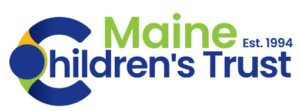A Short History of Community Action
In the 1960’s, President Lyndon B Johnson introduced a set of domestic initiatives known as “the Great Society” which mainly focused on the elimination of poverty and racial injustice and revisited programs outlined in President Franklin D Roosevelt’s “New Deal”. This included the creation of the US Job Corp, the Peace Corp, Upward Bound, Head Start, food stamps, expanded benefits for Social Security, Medicare, and among many other programs we still have today, Community Action Agencies.
The Economic Opportunity Act of 1964, the central piece of legislation in President Johnson’s “War on Poverty”, was drafted by the OEO’s founding Director R. Sargent Shriver. The Community Action Program (CAP), at its core, is defined as a program “which provides services, assistance, and other activities of sufficient scope and size to give promise of progress toward elimination of poverty or a cause or causes of poverty through developing employment opportunities, improving human performance, motivation, and productivity, or bettering the conditions under which people live, learn, and work.”
Today, over 1,000 CAP agencies exist across the country and are still largely responsible for providing Head Start services, Women, Infants, and Children (WIC) Programs, Home Energy Assistance Programs (HEAP), and other services in pursuit of fighting poverty.
History of MMCA
In 1967, John Resenbrink (a prominent political activist, philosopher and founder of both the Maine Green Party and the Green Party of the United States) aided Bowdoin College Professor Paul Hazelton and a group of the school’s students in founding Merrymeeting Community Action (MCA), a CAP agency aimed at supporting low-income individuals in Midcoast Maine. Resenbrink developed and wrote Maine’s first successfully funded anti-poverty program. He continued to serve on MCA’s Board of Directors for several years.
In 1972, Hattie Webber became the first Director of the Coastal Economic Development Corporation (CEDC). From 1977 to 1979, under Mike Kerr’s leadership, the budget grew, and services were expanded to include Downeast Housing, Coastal Enterprises, Head Start, the Comprehensive Employment and Training Act, and Project Aware. From 1980 to 1983, during Sigurd Knudsen’s run as Director and a change in Washington’s administration, several programs emancipated themselves from CEDC to operate independently. In the early 90s, after almost a decade of program cuts and leadership changes, CEDC’s Director, Dana Totman, introduced new programs like the Women, Infants, and Children (WIC) Program, the 444 Washington Street Transitional House, the Housing Counseling Program, and the Head Start Family Service Center.
In 1994, Jessica Tysen took over as Executive Director. Over the course of Tysen’s 25-year career, Coastal Economic Development took on many new projects and programs centered around alleviating homelessness and poverty in the Midcoast area. In July of 2000, Wing Farm Business Park become home to CED’s brand-new office building, consolidating all its services in one location, including Bath’s Head Start center. Over the years, other tenants of this building have included the Maine Department of Labor, the Maine Department of Health and Human Services, the Maine Department of Corrections Juvenile Justice Probation & Parole, the United Way of Mid Coast Maine, Midcoast Literacy, Midcoast Transportation, Merrymeeting Adult Education, and RSU 1. In 2007, CED changed its name to Midcoast Maine Community Action (MMCA) to commemorate its 40th anniversary.
In 2019, MMCA welcomed its current President/CEO Claire Berkowitz. In 2020, Berkowitz and her Senior Leadership Team provided a swift response to Covid 19 and began a Covid Social Supports program to meet the communities needs by providing grocery delivery and transportation assistance. MMCA continues to hold the Head Start and WIC contracts for the Midcoast, as well as the Economic Stability program to provide financial support for utility and heating costs, the Whole Families program that provides whole family, in-home case management, and Families CAN! (The Child Abuse and Neglect Prevention Council for Sagadahoc county). In 2023, MMCA will once again administer the Low-Income Heating Assistance Program (HEAP) for Sagadahoc and Lincoln Counties.





